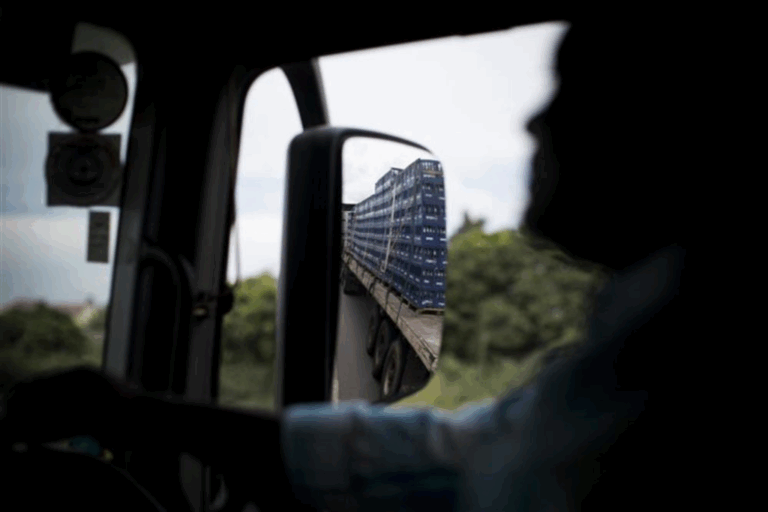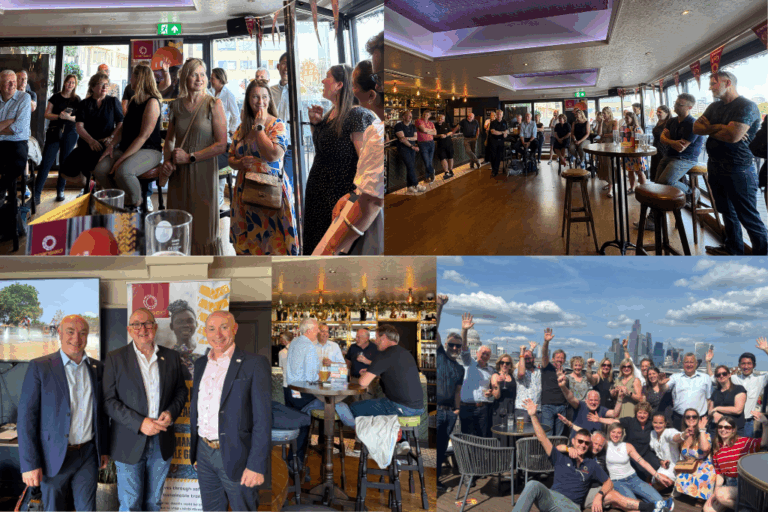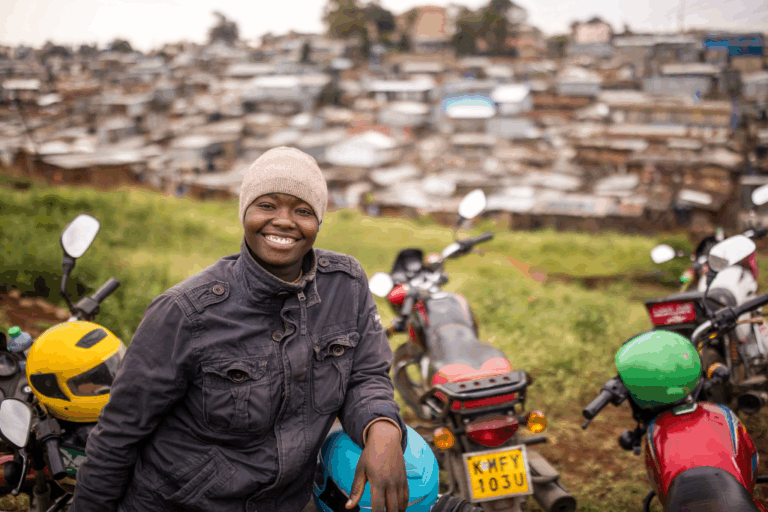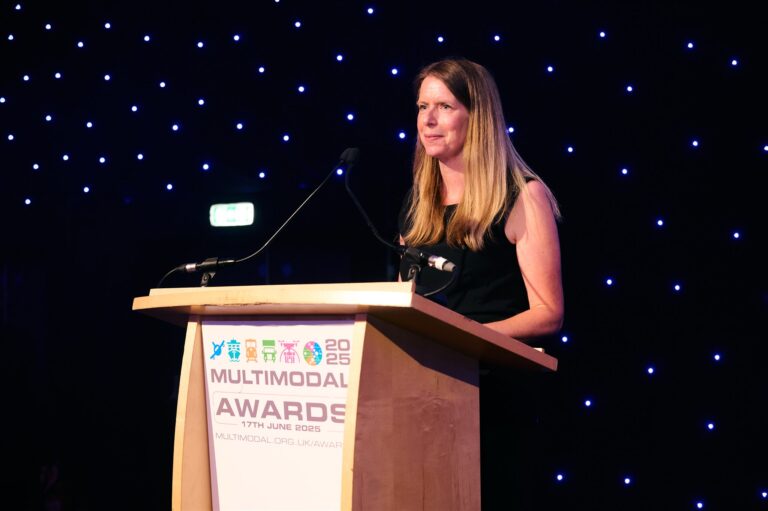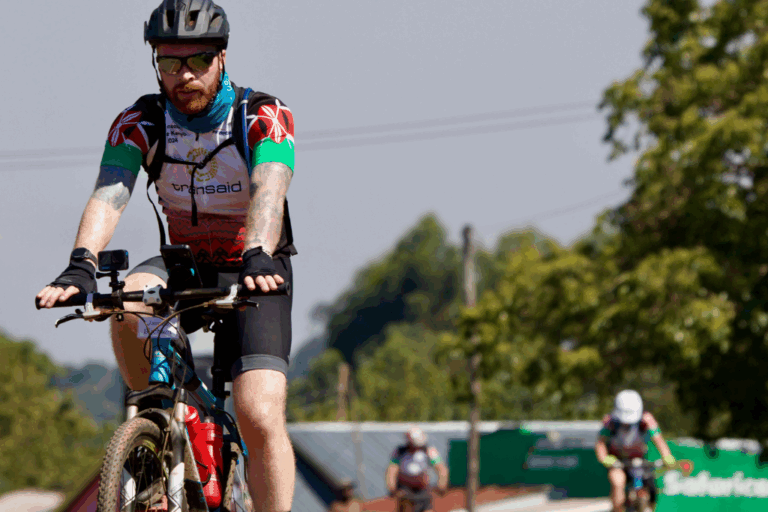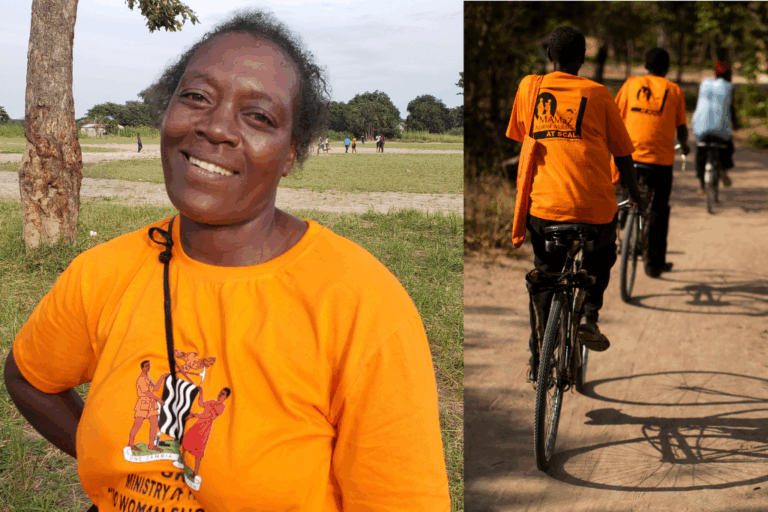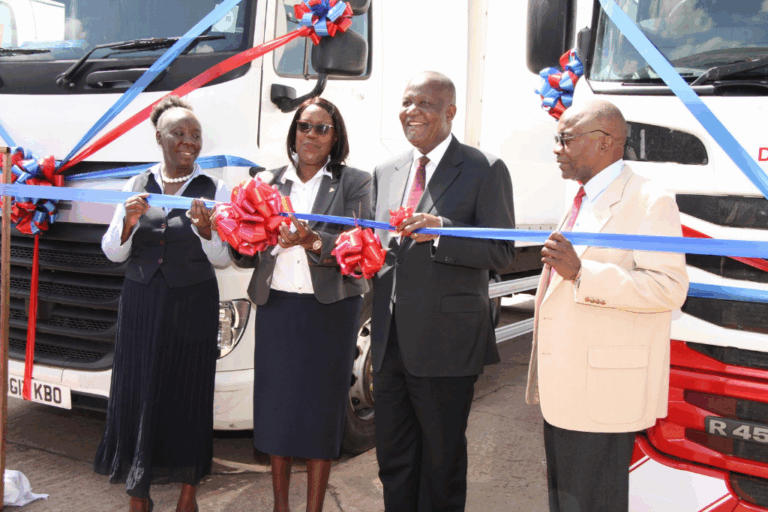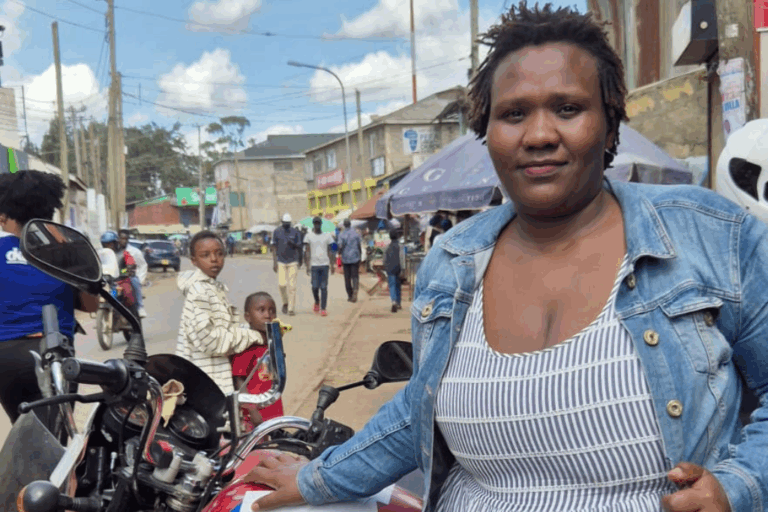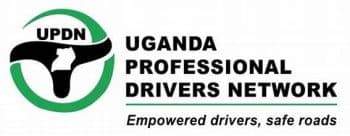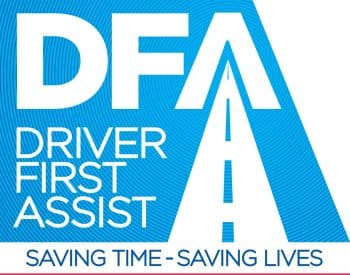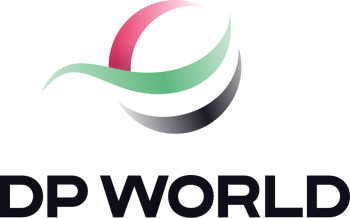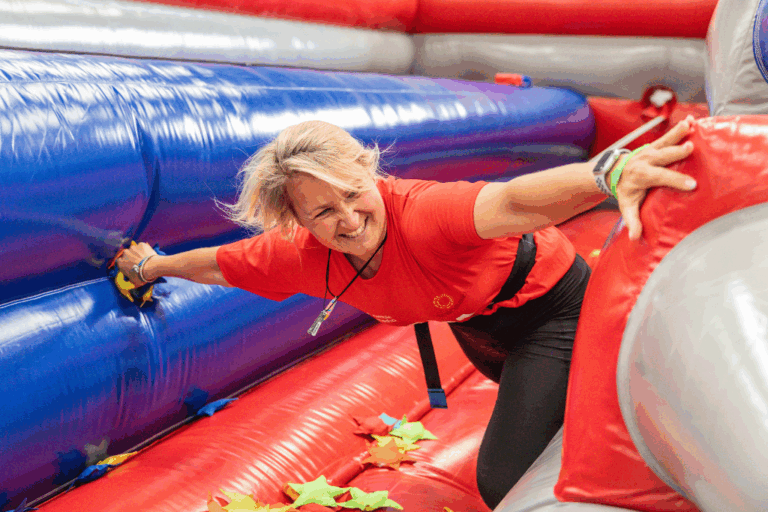
News
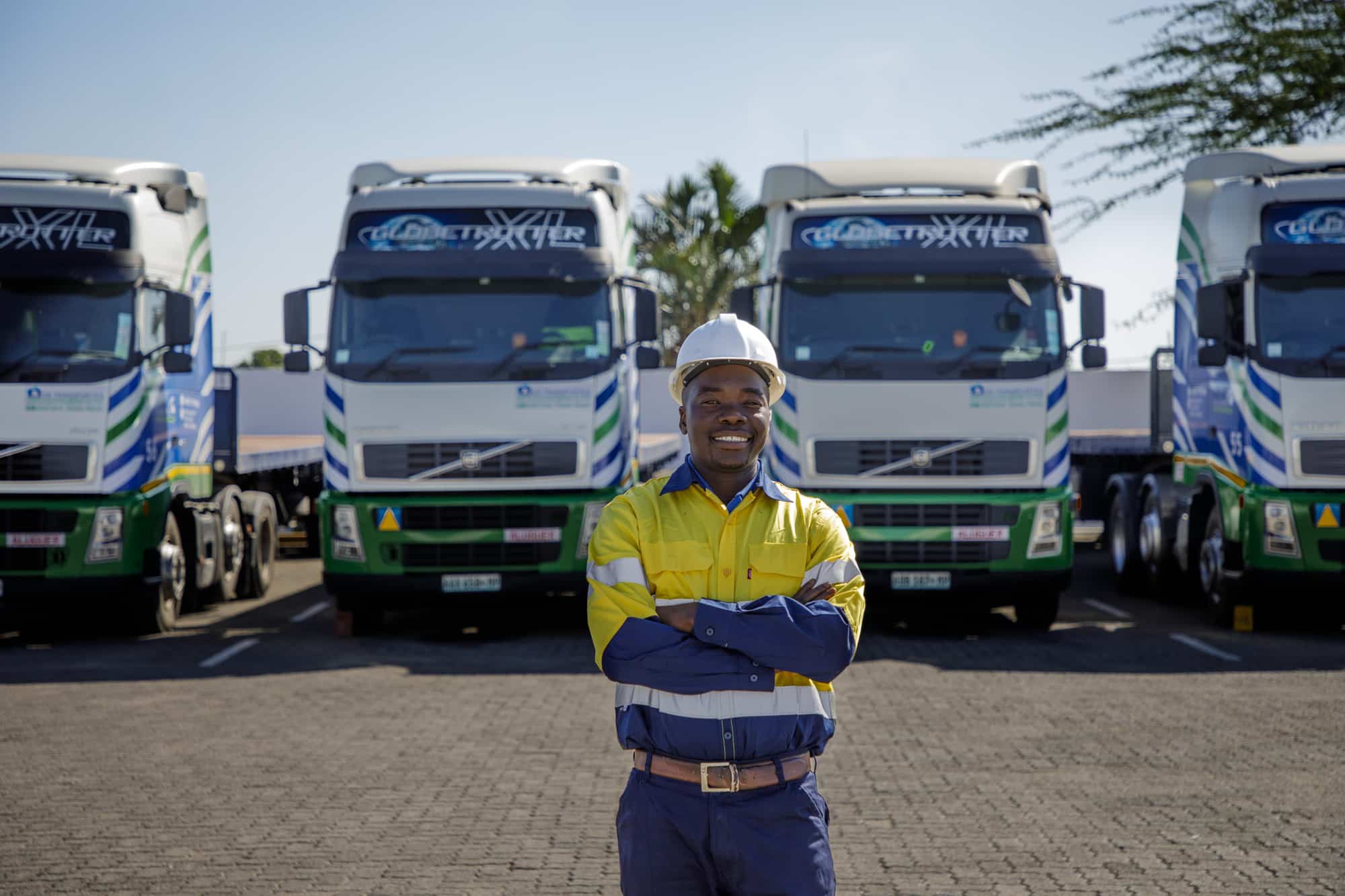
Five stories to celebrate International Women’s Day 2022: #BreakTheBias
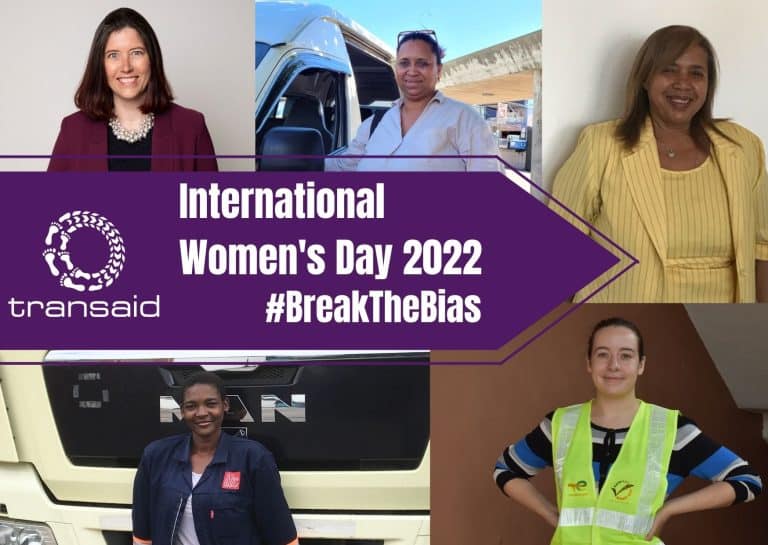
This International Women’s Day, we’re shining the spotlight on five inspirational women working for and alongside Transaid. This year’s theme is Break The Bias – #BreakTheBias -, encouraging us all to spend time having conversations and taking action to challenge and call out gender bias, discrimination and stereotyping, wherever it is present.
We spoke to a mix of Transaid women – from ambassadors to driver trainers – to gather their thoughts on what International Women’s Day and its theme means to them. Below are stories from five women who are challenging gender stereotypes each in their own way. Whether it’s pursuing a career in a male-dominated field, or making a difference through Transaid’s programmes, these women are all breaking the bias and creating a more equal environment, in turn forging women’s equality.
Abbie Rennison – Project Officer, Transaid (seconded from GXO)
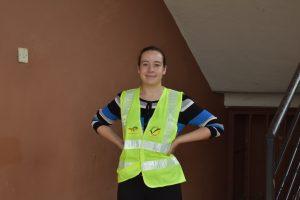 Abbie is based in Uganda, and spends time each week with Transaid’s partner – Safe Way Right Way, at its HGV driver training school in Mukono. Whilst there, Abbie experiences first-hand the day-to-day operations and training, witnessing also how the drivers progress during the training process. The rest of Abbie’s time is spent meeting with transport stakeholders, unions, associations and government officials – mostly in Kampala and the surrounding areas.
Abbie is based in Uganda, and spends time each week with Transaid’s partner – Safe Way Right Way, at its HGV driver training school in Mukono. Whilst there, Abbie experiences first-hand the day-to-day operations and training, witnessing also how the drivers progress during the training process. The rest of Abbie’s time is spent meeting with transport stakeholders, unions, associations and government officials – mostly in Kampala and the surrounding areas.
Abbie is leading the Professional Driver Training Uganda – Phase 2 (PDTU2) programme, working on several key areas around gender inclusivity, with an overarching aim to develop and incorporate a model that supports the welfare of the female drivers, as well as encouraging companies to recruit trained female drivers.
“Recently we’ve had more and more female drivers attend training and I’ve been inspired by their passion and drive to break into a male-dominated transport industry, not just in Uganda, but globally.”
Abbie enjoys being on the ground and seeing progress first-hand: “there is nothing more rewarding than seeing the work that you do create an impact and transform lives. Logistics is a fast-paced world so sometimes people forget the purpose – people are at the heart of everything.
“International Women’s Day is a day for celebrating our achievements as women, empowering ourselves and other women, whilst also recognising progress towards equality.
“It’s about embracing diversity – it is that diversity which inspires creativity, innovation, and productivity. To flourish, we need to develop communities and workplaces where everyone feels safe, valued and respected, so that each individual has the opportunity to grow into their potential.
“I’ve grown up in a family of strong, independent women who have encouraged me to see the world and take opportunities that present themselves, for which I will always be grateful.
“At GXO and Transaid, I’ve worked with incredibly passionate, motivated women who inspire me to push myself every day.
“There are so many women who stood up and made their voice count in a world previously dominated by men, and it is thanks to them that we continue to make progress towards equality.
“Change starts from within – if you take steps to break your own bias, you will then be able to encourage others to do the same. We must be proud of our achievements and celebrate the successes of the women around us, we are all working together to create a world which is free from discrimination and promotes inclusivity.”
Clare Bottle – UKWA CEO & Transaid Ambassador
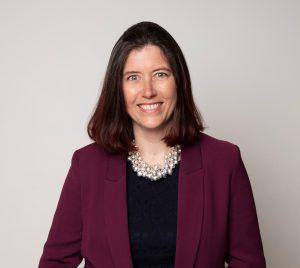 Clare is CEO of the UK Warehousing Association and a founding member of Women in Logistics. She is a long term supporter of Transaid, current Ambassador and ex-Trustee, and has previously taken part in the organisation’s fundraising cycle challenges.
Clare is CEO of the UK Warehousing Association and a founding member of Women in Logistics. She is a long term supporter of Transaid, current Ambassador and ex-Trustee, and has previously taken part in the organisation’s fundraising cycle challenges.
A working week for Clare involves visits to at least two warehouses, so that she can stay in touch with the issues that affect UKWA members. She often speaks to government officials about warehousing matters such as, planning and employment, and frequently attends meetings with providers of warehousing services including forklift trucks, robots or solar panels. Skills and training are essential, and so Clare’s working day often involves conversations with training providers and awarding organisations, as well as juggling the planning of several networking events with her own calendar of speaking engagements. For Clare, no two days are the same.
“The theme for International Women’s Day this year is an acknowledgement that we all have biases and they are usually hard to overcome. The invitation to #BreakTheBias suggests an intersectional aspect to International Women’s Day: one where my identity as a privileged, white, heterosexual, able-bodied, well-educated white woman means I should never be the poster-child for ‘diversity’, but I can still be part of the solution.”
Clare’s trajectory to CEO level has been slow and steady: “leadership is not supposed to be easy and yes I have often found it difficult and encountered barriers, but that is ok. The challenges I’ve faced have simply strengthened my determination and helped make me more resilient.
To Clare, the value of logistics is not only economic, but also social and environmental – a ‘triple bottom line’.
“Warehousing is absolutely crucial to civilisation itself. Unless we are going to return to a hunter-gatherer existence we must rely on efficient and effective supply chains. I love my job because I get to support the companies and people who make that happen and promote their importance to policy-makers, the media and the public.
“International Women’s Day is important to build awareness of gender discrimination and celebrate what’s been accomplished so far. I refuse to believe that we will never achieve global gender equality. It may be a long journey and it will certainly not be achieved in my lifetime, but a world in which we perpetually accept inequality, is too depressing for me to accept. So International Women’s Day is a temporary fixture which today’s women and their male allies’ value, as a rallying cry and jumping off point towards a future in which we no longer need this kind of campaign.
“The thing I tend to admire most in other women is the good judgement to pick which battle to fight, and then the tenacity to fight it without compromise. In this category I would include Ruth Waring (founder of Women in Logistics), Catherine Mayer (founder of the Women’s Equality Party), Malala Yousafzai Malik (founder of the Malala Fund) and of course Sarah Nancollas and HRH Princess Anne who were both instrumental in founding Transaid. There are also some exceptional contemporary writers whose work inspires me, including Anita Anand, Kate Clanchy, Tessa Dunlop, Bernadine Evaristo, Caitlin Moran and Caroline Criado Perez.
“If I had to pick one inspirational woman who is both a fighter and writer, it would be Michelle Obama: when they go low, we go high.”
Sherly Cleophas – Minibus Driver & Line Controller (Cape Town)
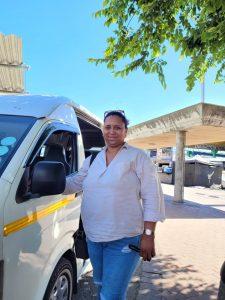 Women in Africa face substantial discrimination in the transport sector, both as users of transport and as transport sector employees. This affects their wider access to work, education and training in every sector. Since the onset of the COVID-19 pandemic, additional pressures on women’s mobility have further exacerbated these constraints. Relevant skills acquisition, at an early age, is essential if women are to break through such barriers.
Women in Africa face substantial discrimination in the transport sector, both as users of transport and as transport sector employees. This affects their wider access to work, education and training in every sector. Since the onset of the COVID-19 pandemic, additional pressures on women’s mobility have further exacerbated these constraints. Relevant skills acquisition, at an early age, is essential if women are to break through such barriers.
Transaid and the University of Durham have investigated youth engagement and skills acquisition within Africa’s transport sector, under the Global Challenges Research Fund (GCRF). The aim of the project is to address the specific challenges of Africa’s highly gendered transport environment, with a view to encouraging Africa’s young women into the labour force, transitioning them to meaningful employment and promoting a greater gender balance.
Sherly works at the Bellville taxi rank, which is one of the busiest taxi ranks in Bellville, Cape Town. More than 1,400 drivers operate out of this rank and Sherly is just one of five women working there.
The minibus taxi industry in South Africa is lucrative, and a major source of employment. With rail services in decline, minibus taxis provide a vital transport service for millions of people every day. However, they can also been the scene of violence, with regular reports of shootings between rival gangs and attacks against women. It is here, in a busy taxi rank filled with drivers, commuters and vendors that SANTACO (South African National Taxi Council) introduced Transaid to Sherly Cleophas for the first time.
Sherly has been a minibus driver for thirteen years, following an introduction that was made by her husband. A typical day for Sherly involves getting up at 3:30am so that she can start work at 4:30am. In the winter it is dark in the mornings and a rush to get out of the house, especially with two young children at home.
Every day is a busy day for Sherly. As well as driving, she also manages two lines at the rank and this comes with additional responsibilities. Each rank has between six and eight drivers at any one time as the passengers embark. It is Sherly’s job to keep the drivers in order as they load and unload their vehicles and to ensure that they follow the rules of the rank, which is certainly not a straightforward task.
“Sometimes there are accusations that I have to deal with. Accusations get raised against the drivers. Mostly these are customer complaints. Formal complaints are taken to the Executive. Drivers come for a hearing – the driver will come along with the owner of the minibus. Sometimes drivers will be suspended, for example if there is a stabbing or a fight in front of customers. It depends how serious the accusation is.”
Sherly explained that sometimes it can be the passengers that cause the problems.
“They bring their issues from home into the minibus and I will ask passengers to think on this when they get into my taxi – sometimes it works.”
“I have learned how to deal with the men at the rank when they give me problems. Sometimes I will raise my voice and other times I will walk away.”
Early on in her role, Sherly found the job to be very stressful, however she has subsequently learned to adapt. She has enjoyed most of the work since starting the job, particularly liking the physical aspect that comes with driving and working on the rank. In the future, Sherly may choose to purchase her own taxi, but for now she is focused on driving and controlling the lines.
Sherly is in the minority as a woman working as a driver at the Bellville rank, and highlighted how difficult this can often be.
“In my culture, men are seen as superior to women and will not allow women to dictate to them. So at work, here on the rank, they think this is not your territory.”
With a decade of experience under her belt, and now controlling two lines in one of the busiest taxi ranks in Cape Town, Sherly is challenging social norms and has clearly earned the respect of the rank, her fellow drivers and SANTACO (South African National Taxi Council).
After a long and challenging day at the rank, one may think that Sherly would be keen to rush home as soon as possible however, Sherly said otherwise.
“If I am not here it is total chaos, so I usually leave well after six o’clock.”
Sharon Petrus – South African National Taxi Council NEC member & Northern Region Transport Solutions Pty Ltd. Minibus Office Manager (Cape Town)
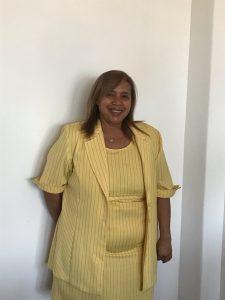 Sharon has a deep understanding of the minibus taxi industry in South Africa, having driven a minibus herself for a living for a number of years. Sharon explained to Transaid that for fifty years, the transport sector in South Africa has been a male dominated industry.
Sharon has a deep understanding of the minibus taxi industry in South Africa, having driven a minibus herself for a living for a number of years. Sharon explained to Transaid that for fifty years, the transport sector in South Africa has been a male dominated industry.
“Historically, a woman’s place has been in the home. This is a male dominated industry, and men often don’t want women to participate. We had a policy document at SANTACO that speaks to women but we found it didn’t actually speak to us. We have decided that we can’t sit behind a desk – we need to stand up for ourselves.”
Sharon knows all too well the dangers associated with working in this sector in South Africa, having herself been attacked when she was working in her minibus at the rank. A man attempted to drag her out of the taxi and beat her. This was the moment that Sharon decided to stop driving. She managed to survive the attack but decided that it was far too dangerous to continue. Today, Sharon is the owner of a number of minibus taxis and instead, her sons take the wheel.
Sharon said that women have often entered the sector as widows, whose late husbands previously worked in the industry and they have found themselves taking up this role.
Sharing some background about SANTACO, Sharon explained that in 2007 the organisation attempted to attract more involvement from women – to enlarge the numbers moving forward. Spouses of male operators and daughters (aged over 21) were encouraged to enter the sector. In November 2008 an interim women’s desk was formed. Sharon now represents SANTACO at the national level and is a powerful advocate for women working in the transport sector.
Sekai Makweja – Driver trainer, Industrial Training Centre (ITC)
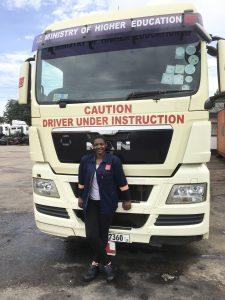 Sekai delivers training to drivers at the Industrial Training Centre (ITC), in Zambia. Based in Lusaka, the ITC has been delivering driver training in partnership with Transaid since 2008.
Sekai delivers training to drivers at the Industrial Training Centre (ITC), in Zambia. Based in Lusaka, the ITC has been delivering driver training in partnership with Transaid since 2008.
A typical day for Sekai involves awaking early in the morning, to travel to the ITC and commence training. She inspects the training vehicle, along with the students to ensure that it is fit for duty and then begins the practical training. Some of her responsibilities include ensuring that the students learn the skills that are required of a driver, that they adhere to road safety rules and guidelines, and she will also intervene should things go wrong, such as if a student loses control.
Sekai is the first and only female driver trainer at the ITC, and her students often have different levels of understanding and abilities – some being complete novices, and others often have some level of competency. “This means that I have to treat them differently, whilst ensuring that I achieve my objective of giving them the required skills as drivers. The biggest proportion of my trainees are male, as this is a male dominated industry.
“On the road we meet different road users with different ways of doing things, which in some ways can compromise the safety of others, especially my trainee drivers who react differently to incidents as they are new on the road and attempting to acquire a skill. At the end of the day we drive back to the office and complete all the necessary documents for that particular day.”
To Sekai, International Women’s Day is a day for women to be recognised and appreciated for the role that they play in society. It is also a day when women are reminded of their potential to rise up and go to heights and places that they have never been to, and set the trends for younger generations to emulate.
“The theme this year could not have come at a better time, a lot of women are hesitant to take on male dominated roles due to fear of gender discrimination, the unknown, cultural norms and many other reasons.
“I have been inspired by so many women, but in particular Ms Ida, one of the bus drivers from Flash-Capital buses based in Lusaka; how she conducted herself and interacted with passengers. She showed me that it was not about being a lady, but how you conduct yourself and what you want to achieve despite the general talk against women in male dominated and challenging environments.
“I love to see change in myself as well as impacting other peoples’ lives in a positive way, bringing out the best of them, for a better future.”
In Zambia, International Women’s Day is a public holiday. “Women of this generation must rise up to the occasion of breaking the gender biases so that we can talk about a different story in the future, where there will be a gender balance in the workplace.”
Recent Posts


